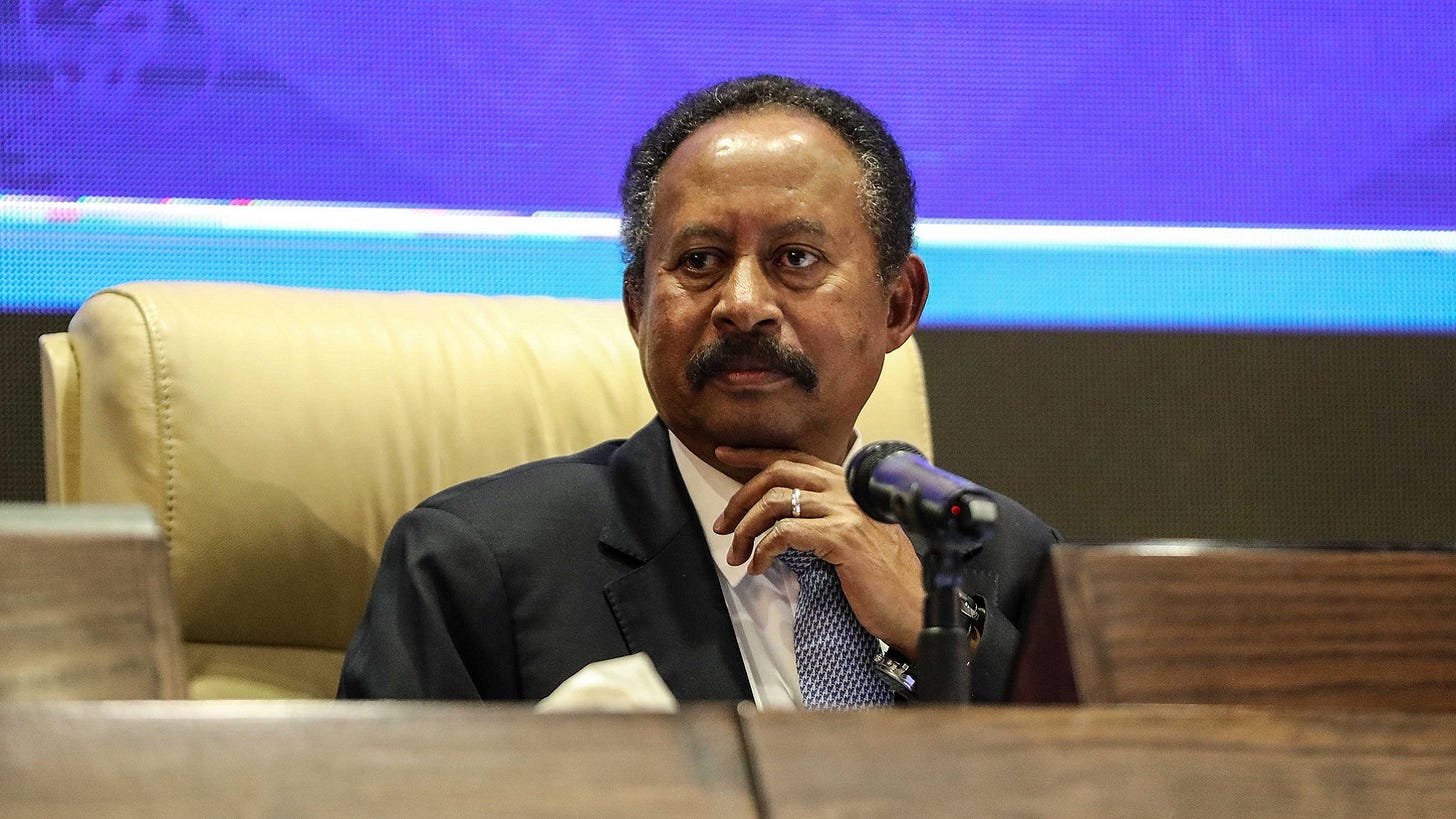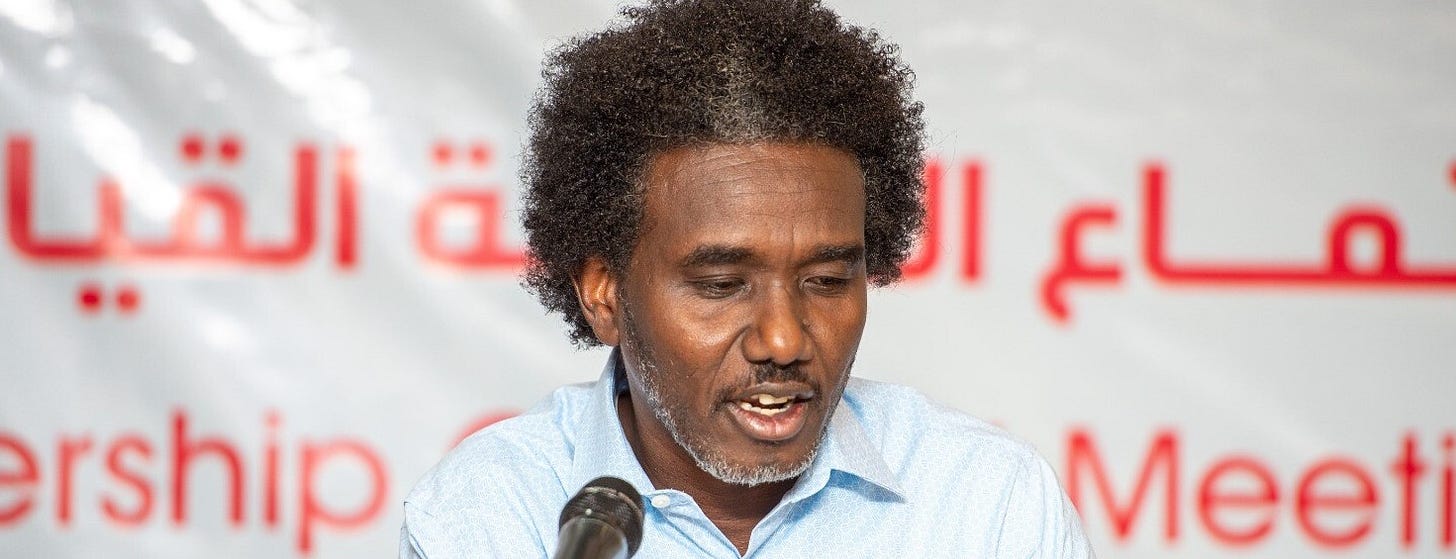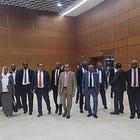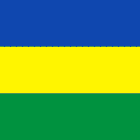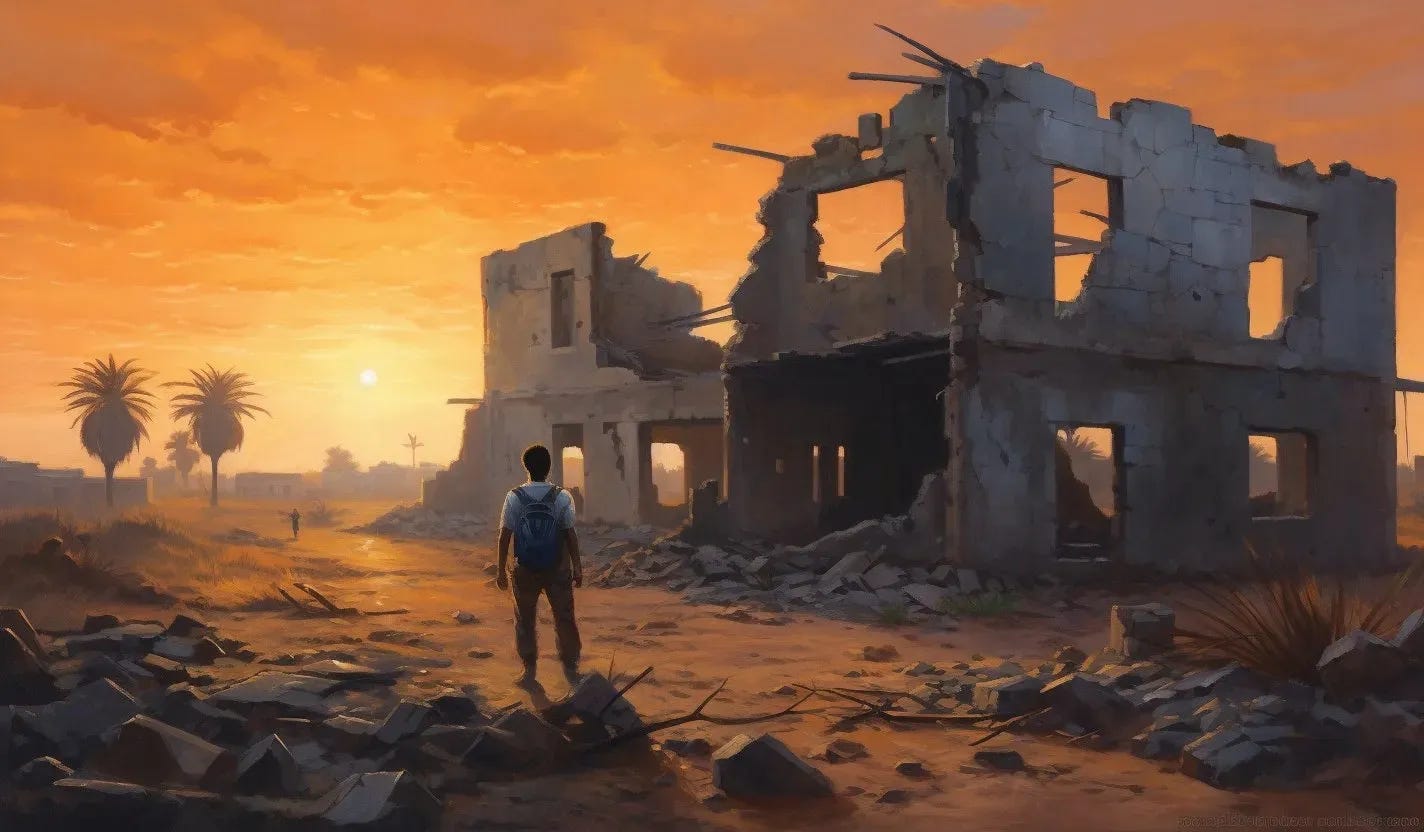Debate over parallel government divides Taqaddum
Competing visions emerge within the anti-war coalition
Sudan’s largest civilian anti-war coalition, the Coordination of Civil Democratic Forces (Taqaddum), is facing deep internal divisions over whether to form a government-in-exile. Led by former Prime Minister Abdallah Hamdok, Taqaddum was established to unify civilian opposition against the ongoing war between the Sudanese Armed Forces (SAF) and the paramilitary Rapid Support Forces (RSF).
Despite receiving significant international and local backing, the coalition has been viewed by the SAF and its supporters, including pro-SAF political groups, as the political wing of the RSF. This perception has complicated its role as a neutral mediator in the conflict, while competing visions within the coalition have further exposed rifts that could undermine its ability to mediate effectively.
Proponents argue a government-in-exile would provide a legitimate civilian authority to challenge the Port Sudan junta, which has acted as Sudan’s de facto government since the 2021 coup. However, critics warn that such a move could fragment the coalition, weaken its neutrality, and complicate diplomatic efforts to end the war.
The U.S. has voiced concerns over the proposal, warning that it could exacerbate political fragmentation in Sudan. These fears have been heightened by instances of the RSF backing the idea of an exiled government, particularly in regions of its control. Such support has raised alarms among key Taqaddum leaders, who worry that the coalition’s neutrality could be compromised.
Meanwhile, the emergence of strong internal opposition to the proposal has exposed the deep divisions within Taqaddum over the matter. Proponents of the exiled government have pushed for urgent action in recent weeks, while critics have openly challenged the idea, leading to public disagreements among senior leaders.
In a statement on Thursday, Taqaddum’s official spokesperson Bakri Al-Jak said that the coalition does not seek to form a parallel government and emphasized that the proposal lacked consensus during leadership meetings. He revealed that the coalition had agreed to separate individuals and entities advocating for an exiled government from those opposed, signaling a potential organizational split.
Jak wrote in a statement posted on Taqaddum’s Facebook page:
“The official position of the Coordination of Civil Democratic Forces (Taqaddum) has always been, and remains, that the Coordination does not seek to form a government-in-exile or a parallel government.
“During the Leadership Body meeting of (Taqaddum), which concluded on December 6 of last year, a proposal to form a government was put forward by a group within the Leadership Body. However, no consensus was reached on the proposal. Consequently, the meeting decided to refer the issue of legitimacy disputes and other matters to the Political Mechanism, which held several meetings and issued recommendations that were submitted to the General Secretariat and the Leadership Body of the Coordination.
“In its most recent meeting, the Political Mechanism agreed to separate entities and individuals insisting on forming a government from those committed to not forming any government—whether independently or in collaboration with any warring party. A committee was established to develop a framework for this separation that maximizes the common ground between both sides, allowing them to operate independently, both politically and organizationally, while fully respecting their differing choices based on their respective considerations. However, the reality remains that these divergent choices cannot coexist within a single alliance that opposes the war and remains neutral toward all conflicting parties.
“We recognize the deep impact of the war in driving polarization and division, yet the Coordination of Civil Democratic Forces remains neutral and does not recognize the legitimacy of the de facto authority in Port Sudan or any other authority. We reject war and violence as a means of managing political conflict in the country and are committed to building a civilian front that opposes the war and believes in the unity of the country.
“Furthermore, we will continue efforts to end the war through mass mobilization and diplomatic engagement, in addition to working toward a comprehensive dialogue involving all active forces. This dialogue must be grounded in a holistic vision for justice and transitional justice, as well as a broad framework for social recovery to mend the social fabric and address the political and social divisions caused by the war.”
However, Al-Hadi Idris, one of the two deputy heads of the coalition, released a separate statement rejecting Al-Jack’s remarks, asserting that they do not represent the coalition’s official position. He emphasized that no final decision had been made and accused some members of attempting to push their own agenda outside the coalition’s organizational framework.
“In light of recent statements, we wish to clarify that the statement circulated under the name of the spokesperson does not represent the official position of the Coordination of Civil Democratic Forces (Taqaddum). This statement was not agreed upon by any of the officially recognized bodies of the Coordination and was not approved through the established organizational frameworks.
“We also affirm that Taqaddum has not yet made any decision regarding the issue of forming a government, and this matter remains under discussion among all parties. Any premature statements made outside the organizational framework are irresponsible attempts to push a specific agenda and do not reflect the collective will of the alliance.
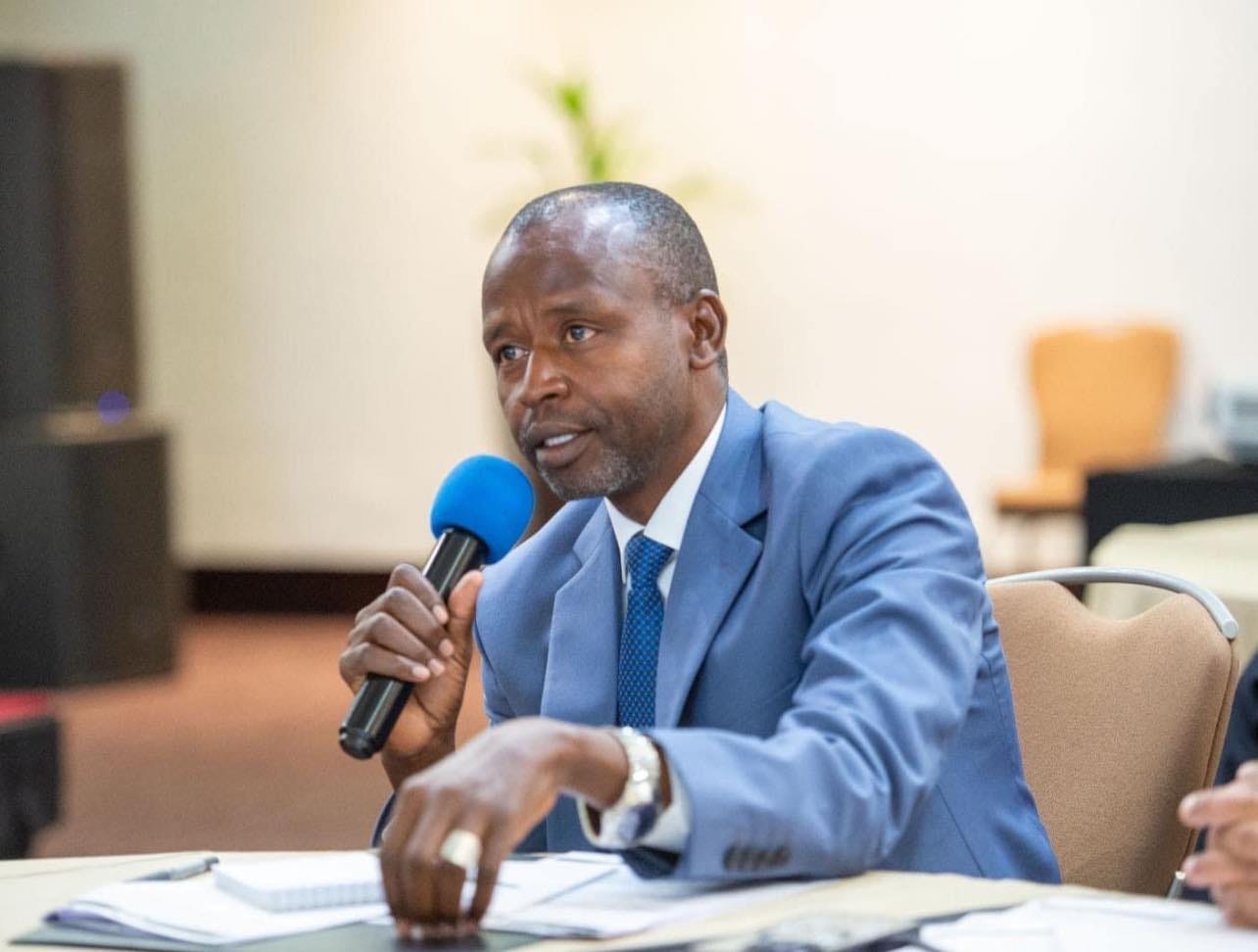
“We view this hasty statement as an attempt to create division within the Coordination, which we strongly reject. The Taqaddum alliance was founded on a basis of political consensus among its founding members, and only they have the right to determine its future. No individual party can unilaterally decide the fate of the Coordination or issue critical decisions without collective approval.
“We reject any attempts to impose a fait accompli without consulting all partners, and we will firmly and responsibly confront any such actions,” Idris said in a subsequent statement posted on the same Facebook page on Thursday.
The public disagreement highlights the fragility of Taqaddum’s unity, which has been a cornerstone of its credibility as a neutral civilian body advocating for end of the civil war and democratic governance. The coalition has positioned itself as an independent force rejecting both the SAF-led administration and any authority formed through armed conflict.
The current rift raises questions about its ability to maintain cohesion and effectively push for a peaceful resolution to Sudan’s crisis. The perception of Taqaddum as aligned with the RSF, fueled by instances of RSF support for the exiled government proposal, has further strained its neutrality and complicated its diplomatic standing in recent months.
Sudan’s conflict, which erupted in April 2023, has displaced millions and left the country without a civilian government since the 2021 coup. The SAF, led by General Abdelfattah al-Burhan, has acted as Sudan’s de facto authority, engaging with regional and international partners despite widespread questions about its legitimacy, both domestically and internationally.
Related coverage
Support our journalism
Thank you for reading Sudan War Monitor. We do this work because we believe that journalism is one accountability mechanism that ultimately can contribute toward peace and justice in Sudan—however distant that hope may be. Our work is intended to be a resource for humanitarians, civil society, ordinary Sudanese, diplomats, and news media. Subscribe or share to support our work and help “Keep Eyes on Sudan.”
Sudan War Monitor is neutral and not affiliated with any of the warring parties. We monitor violations by both warring parties, publishing detailed reports about mass atrocities, major battles, peace initiatives, and humanitarian developments.




